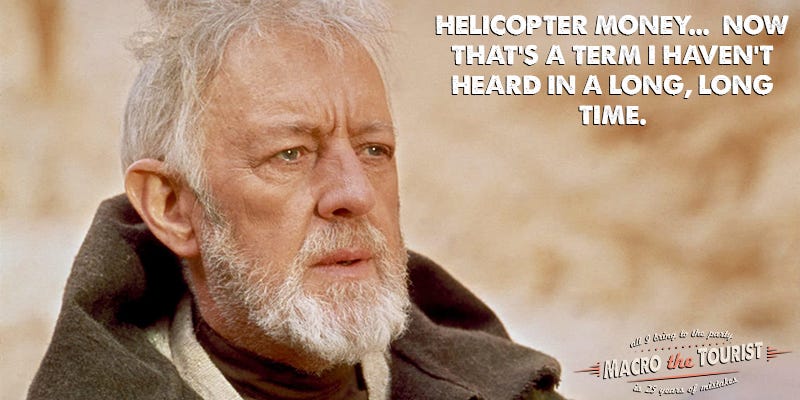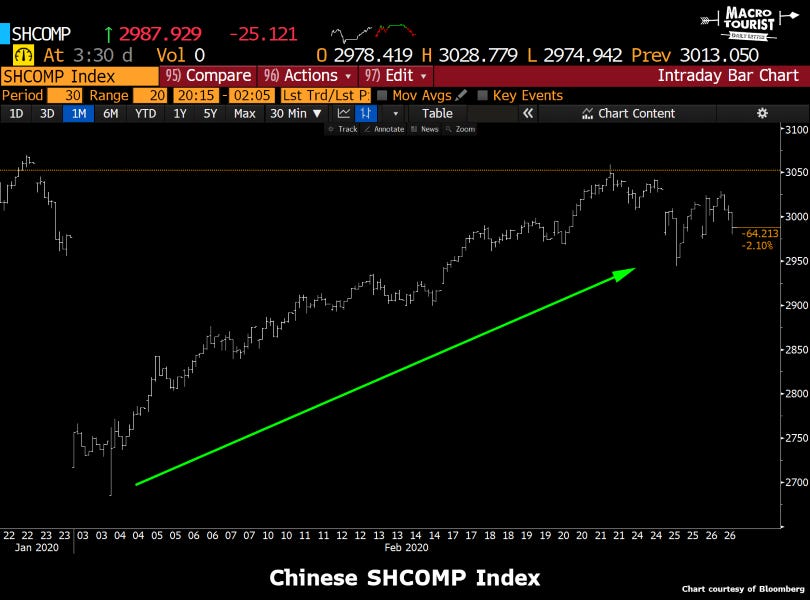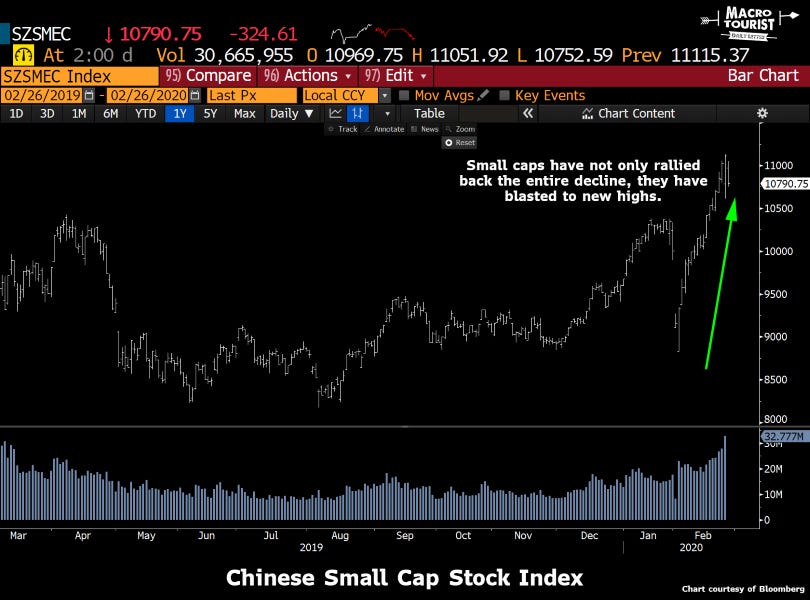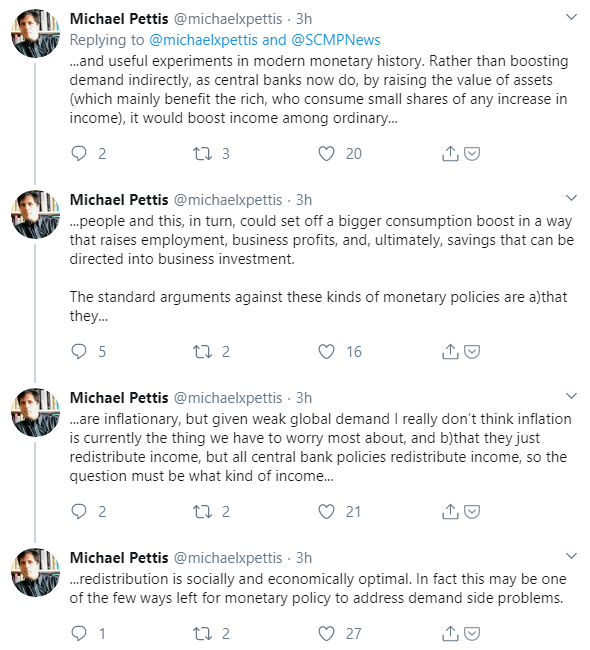MOAS Version 0.96b
Mother Of All Stimulus (MOAS) - Fiscal stimulus is coming

Many times when I suggest that authorities will respond to this coronavirus situation with the MOAS (Mother Of All Stimulus), I get lectured how there is no way countries can stimulate because of;
a) lack of fiscal room
b) inability of different nations to agree on spending
c) foreign exchange limitations
d) insert hard-money gold-standard based economic reason in here
Seriously, the pushback on the idea that governments will do whatever it takes in the face of this crisis is shocking.
I have no desire to engage in a debate of whether this stimulus will work in the long-run. Maybe it doesn't. Does anyone really know?
But have you had a look at Chinese stocks since the virus hit?

What's even more amazing is Chinese small-cap stocks.

Not only has this index clawed back the entire loss following the virus-induced selloff, but they have blasted to new highs for the year!
China has thrown an extraordinary amount of monetary stimulus at the problem. They are ignoring the warnings from the China-skeptics who shriek this will cause inflation and that they can't hold the currency peg. Maybe they are right, but in the meantime, Chinese financial assets are screaming higher.
And what about Hong Kong? No doubt their economy is in tough shape. I won't argue that fact one bit.
But did you see what the government did yesterday?

That's right! You get money. And you get money! And you get money!

The Hong Kong government has bypassed monetary stimulus and decided to just inject the drug straight into the vein.
From the South China Morning Post:
Hong Kong permanent residents aged 18 and above will each receive a cash handout of HK$10,000 (US$1,200) in a HK$120 billion (US$15 billion) relief deal rolled out by the government to ease the burden on individuals and companies, while saving jobs.
Financial Secretary Paul Chan Mo-po confirmed an earlier Post report when he unveiled the payment during his budget speech on Wednesday morning, along with a full guarantee on loans taken out by companies to pay wages and taxes.
This is true helicopter money.
One of my readers highlighted this terrific Michael Pettis twitter thread on the topic, so instead of rehashing it, I thought it better to just present Michael's interpretation:


Interesting times indeed! The world is changing.
Heck, even the Germans are changing their attitude. From Bloomberg:
Germany’s Scholz Plans to Pause Debt Brake Amid Stimulus CallsBy Birgit Jennen and Viktoria Dendrinou(Bloomberg) --
Finance Minister Olaf Scholz wants to temporarily suspend Germany’s debt brake to provide space for regions to spend more, according to an official familiar with the plans, a step that could open the door to fresh stimulus for Europe’s largest economy.
The move, which comes amid increasing pressure on Germany to loosen purse strings at a time of weak growth, would shift borrowings from local municipalities to the federal government, giving them more budget space to invest locally. The debt brake means such authorities normally have limited scope to spend because much of their outgoings are wages.
Suspending the rule could potentially also clear the way for the German government to boost spending at the central level as well, something a chorus of economic officials including those at the European Central Bank have been seeking for months amid a manufacturing slump that has brought the economy to the brink of contraction.
Calls for more investment spending have picked up in frequency and urgency amid mounting data showing the German economy has yet to tackle its bleak growth outlook, while risks stemming from trade tensions and the coronavirus outbreak loom large.
Germany stands out as the only Group of Seven member with a budget surplus, and a relatively low debt burden. It has been the key target of the ECB’s calls for governments with fiscal space to ramp up spending, and for European Union officials seeking a common budget tool.
Fiscal expansion is coming. Everywhere. If some hard-money person tells you why it can't, just ignore them. The coronavirus will give governments throughout the world the flexibility to experiment with unorthodox monetary and fiscal policies. We have entered a brave new world. Yeah, maybe you don't like it, but you need to adapt to it. Don't get stuck in old-world thinking.
Thanks for reading,
Kevin Muir
the MacroTourist

